IN VIVO
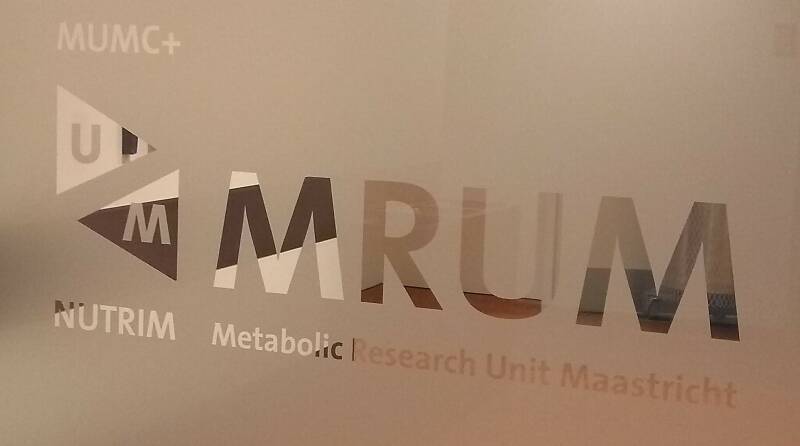
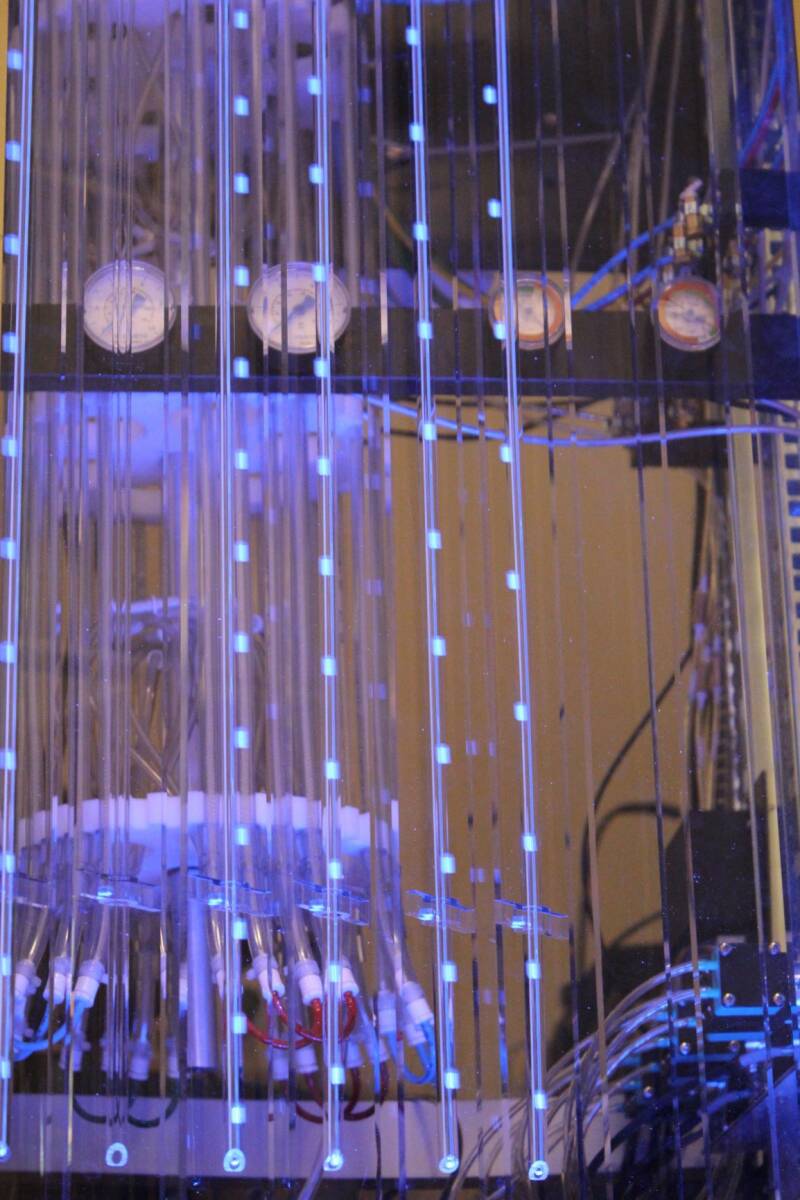
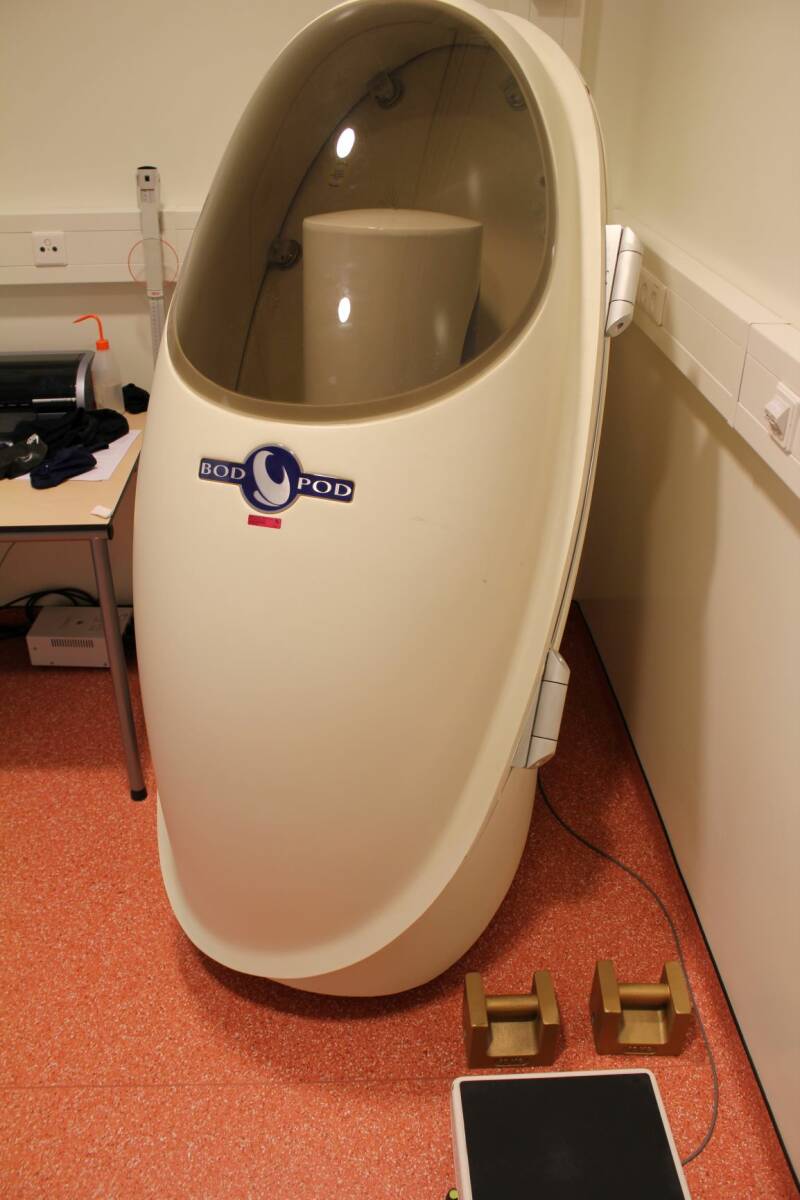


As the prevalence of obesity and type II diabetes rapidly increases, so does the demand for highly precise studies in the field of energy expenditure, substrate utilization and other metabolic parameters. These studies are of the greatest interest for nutritional, pharmaceutical and other health-related metabolic research.
The Metabolic Research Unit Maastricht (MRUM) is a facility built to bring the field of human energy and substrate metabolism to the next level. Twenty metabolic rooms were realized conforming to the latest quality standards regarding safety, climate control and research infrastructure. To optimize flexibility and efficiency, 11 of the 20 clinical rooms are deemed multi-purpose, which means that each of these 11 rooms can be setup to address a variety of research questions, involving physical setup (single/dual bedding, sports equipment, group interaction) as well as environmental setup (broad range of climate, and ventilation control, overnight stay, circadian rhythm intervention). The remaining 9 rooms are specifically tailored to research questions involving highest level exercise, body composition assessment (BodPod and underwater weighing), and closed-room calorimetry for 1-7 day energy metabolism studies.
One of the unique features of the MRUM are the 5 climate controlled respiration chambers (room calorimeters). These rooms are like small hotel rooms (14 m3), equipped with a bed, sink, toilet, computer, TV and DVD player. A respiration chamber allows to study human energy expenditure and substrate oxidation under strictly standardized conditions over a period of 12h up to 7 days.
IN VITRO
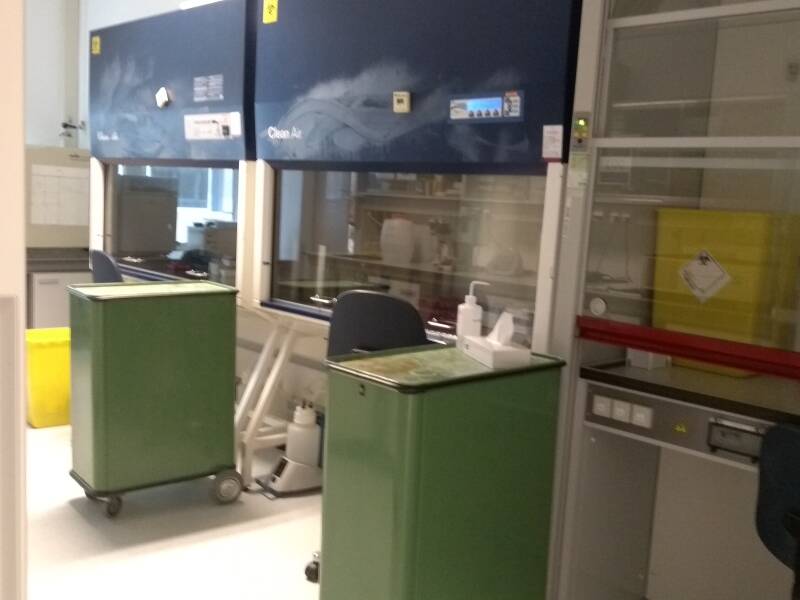

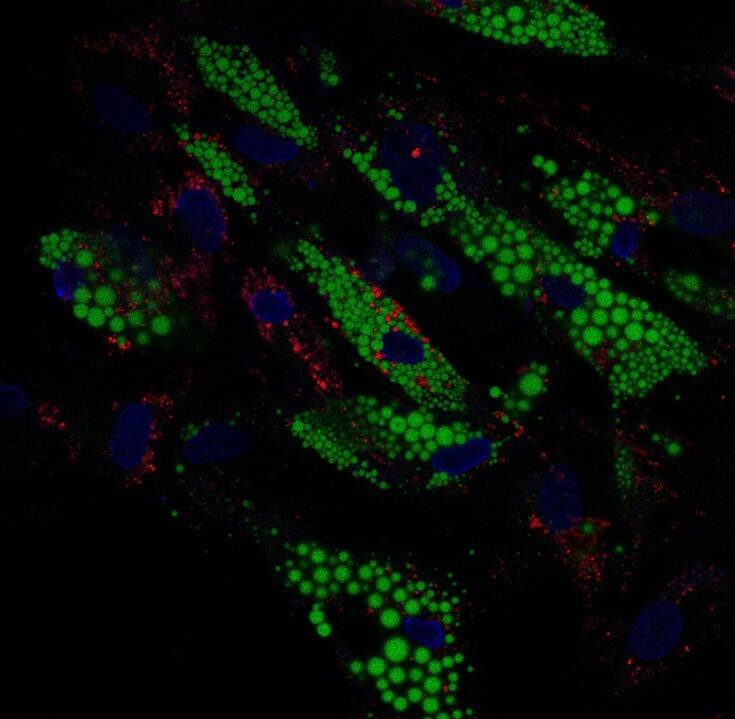
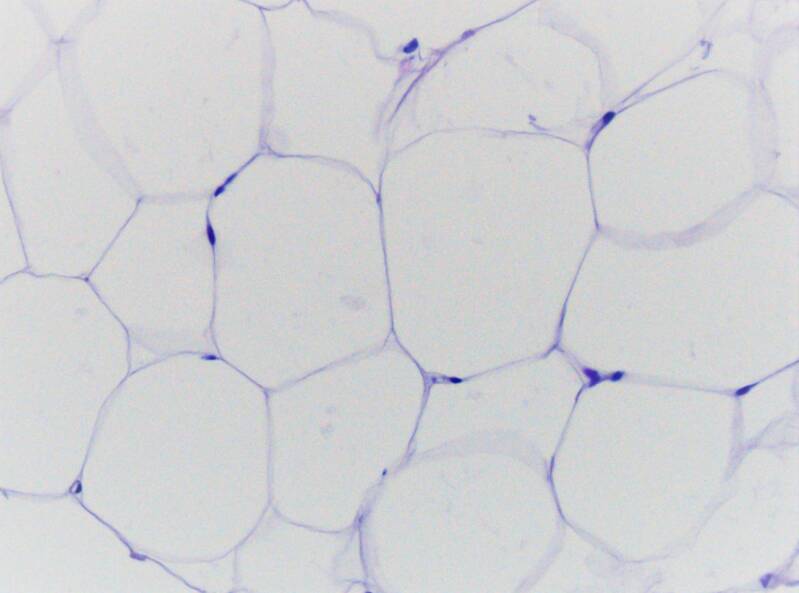
The department of Human Biology has excellent ML-I and ML-II (GMO approved) cell culture facilities including several flow cabinets, CO2 incubators and a fluorescence microscope for live cell imaging. Experiments are performed with different fat, muscle and liver cell lines, such as 3T3-L1, SGBS, C2C12, L6 and hepG2 cells. In addition, a biobank of human primary cells (hMADS, satellite cells and hepatocytes) has been established from well-phenotyped donors.
The cell experiments include state-of-the-art in vitro technology for the study of metabolic processes including radioactive tracers, Seahorse XF analyzers to measure oxygen consumption rate (OCR), and extracellular acidification rate (ECAR) of live cells, and loss-and-gain of function experiments inclusing lentiviral shRNA. The aim of the cell culture experiments is to gain more mechanistic insight into the metabolic processes involved in the regulation of substrate metabolism in human metabolic health and diseases.
We have a joint embedding of the research group Microbiology of the Gastro-Intestinal tract with Campus Venlo for the gut fermentation models.

